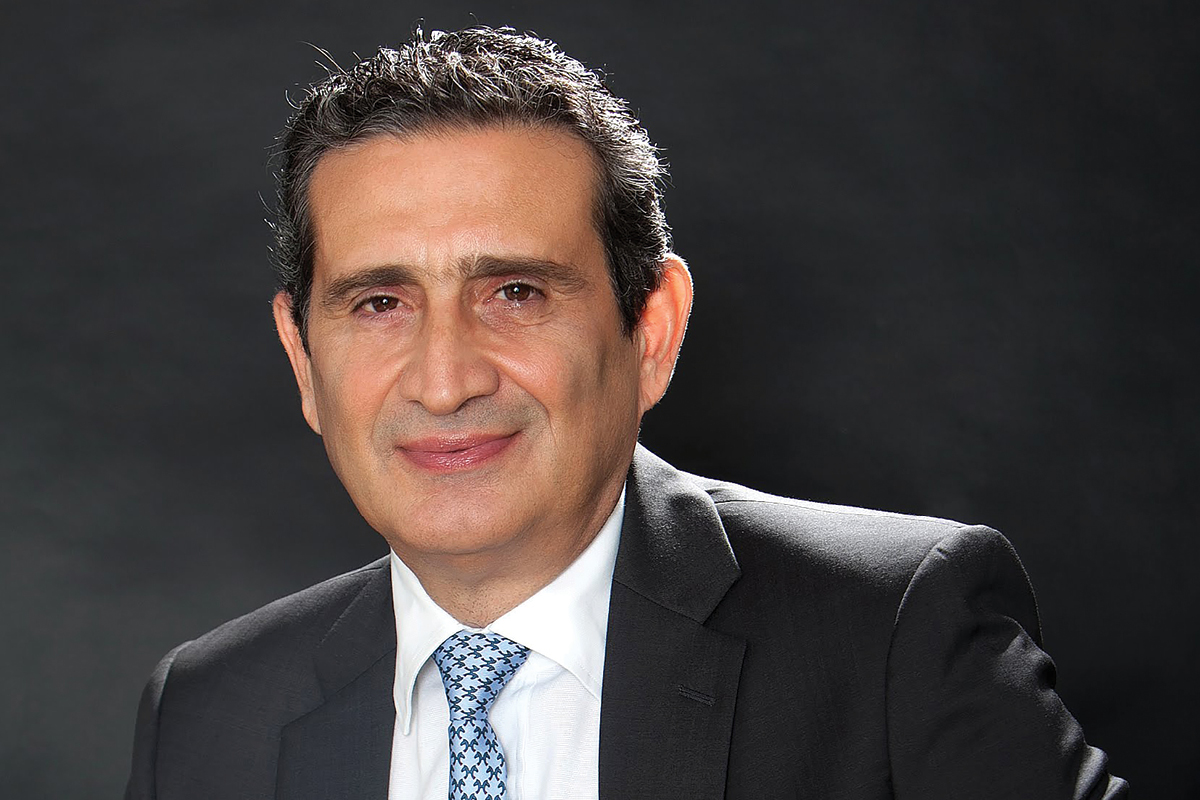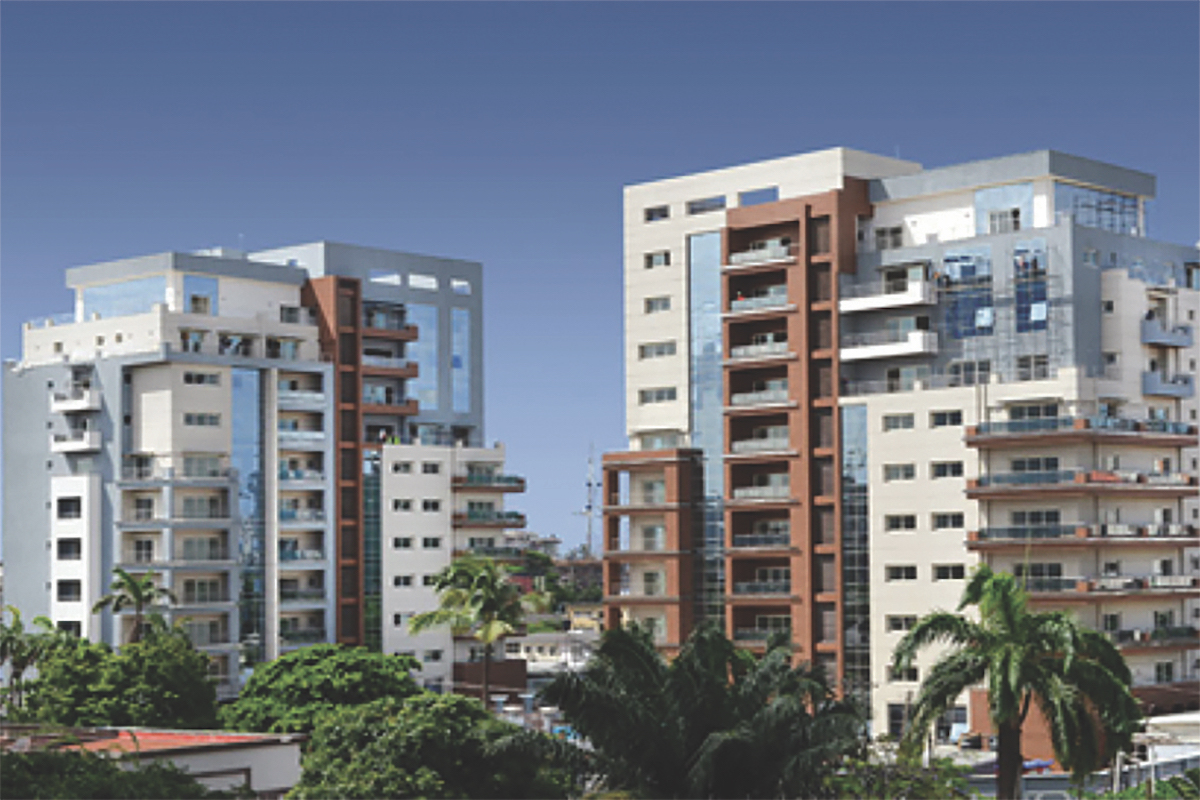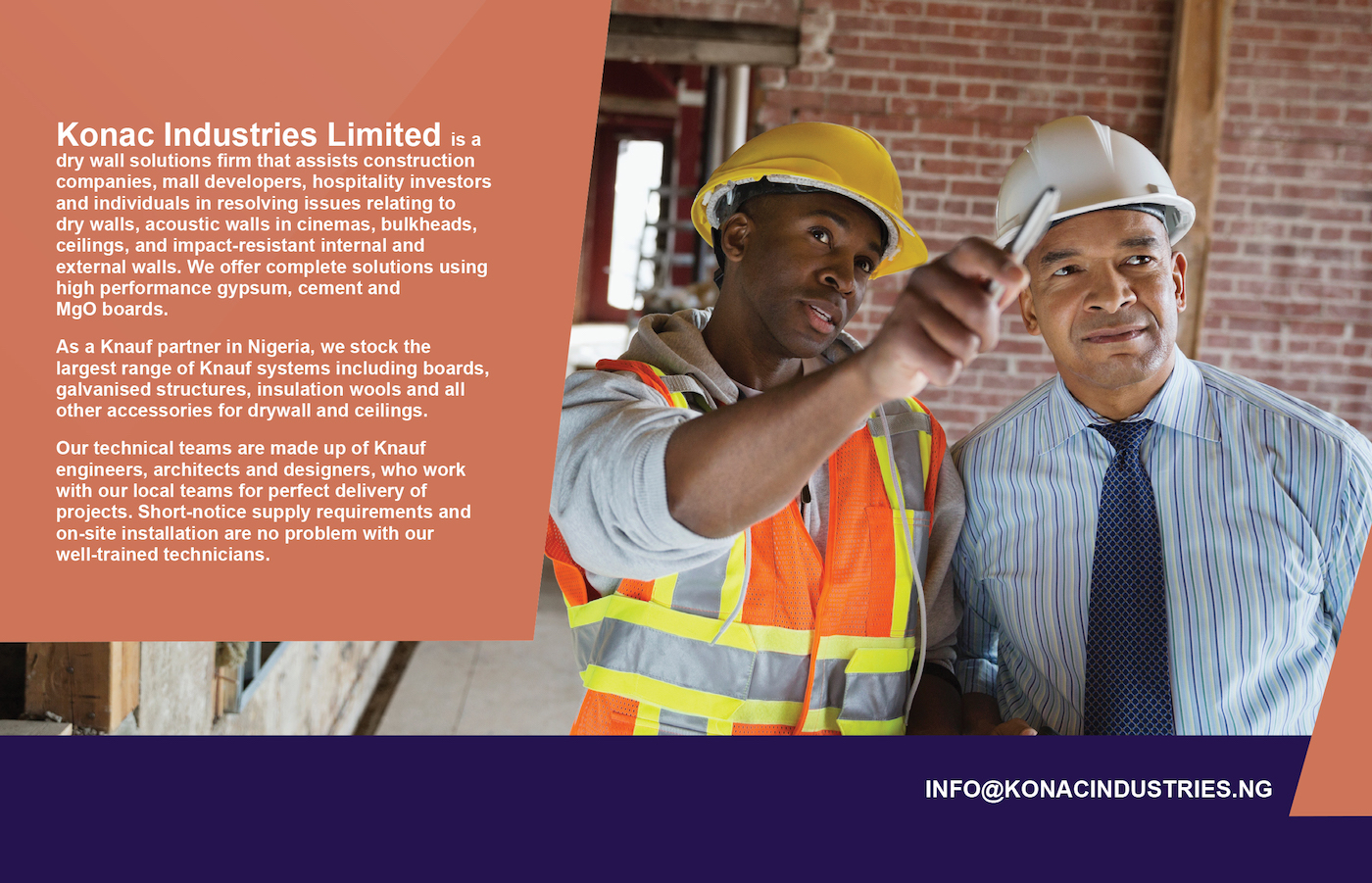Andrea Geday’s words are laced with pride when he talks about his company. As Co-Founder and Managing Director of El-Alan Construction Company, he isn’t just proud of its achievements; he’s proud of what it is.
“El-Alan started from scratch,” he says. “Nobody has helped us to do anything. We’ve broken our glass ceilings every time, and we’ve become a model that people would like to emulate. We’ve developed a brand that is one of the best brands in the construction industry.”

Andrea founded El-Alan with two other partners in 1982. He had immigrated to Nigeria as an engineer, equipped with a Bachelor of Science in Production Engineering and a Master of Science in Construction Management, and decided to start his own business.
Though he was employed, the company he worked for faced severe issues during a political coup, due to its involvement. This situation was the perfect catalyst for El-Alan to begin business, and it saw potential in the construction industry.
Nigeria, however, was facing a recession. In the late 1980s, the World Bank classified Nigeria as a low-income country for the first time since the World Development Report was instituted in 1978. It was what Andrea calls “the worst possible time to start a business”. Undeterred, El-Alan went ahead and defied the odds.
Today, it’s one of the fastest growing construction companies in Nigeria, with a mission to be the best of the best, says Andrea. It is an associated member of a group of companies that provides services across all areas of the construction industry, with a team of more than 2,500 people, including 800 full-time employees and the rest skilled workers. “When people come to us, they’re not coming to argue or negotiate,” says Andrea. “They’re coming because they know they’re going to get the best product.”
“When people come to us … (it’s) because they know they’re going to get the best product.”
Among its achievements is the construction of the biggest hatchery in Africa for Olam International. Though it was on a tight deadline for the industrial complex, the company managed to finish in record time. Another recent milestone for El-Alan is a new luxury development in Lagos’s most exclusive area. “It is 4 Bourdillon, the tallest residential building in the area,” Andrea says. “It is already nearly 70% sold. It is a huge achievement for us.”
The company has recently formed a strategic partnership with the African Capital Alliance (ACA). The combined resources of an integrated construction group and a private equity fund have proven to be beneficial, and Andrea is excited about the future.
“It is progressing well,” he says. “We are developing facilities like schools, swimming pools and playgrounds that can exist on top of a shopping mall. It’s a new environment for us and a concept that isn’t common in Nigeria.”
El-Alan tends to focus on the luxury end of the market but has plans to expand into other areas. “We have a two-pronged approach: keep occupying the luxury side of the market and work to develop products for the middle and lower middle class,” Andrea explains. “The former is producing unique developments concerning design and quality of execution.
The latter is a project, tagged Blue Water Lagos, that we’ve started with ACA to create quality products at affordable prices.”
Working to these goals requires skilled, experienced workers. For years, the company has recruited emigrants to fill many roles, but this can cost as much as hundreds of thousands of dollars a year. It was necessary, then, for El-Alan to build a vocational school locally to enhance the skills of its employees.

“It is costly for us to hire expatriates, so starting a school was a strategic move to reduce our costs,” Andrea explains. “It is increasing the skills of local manpower, and people are happy to work for the group because they know that they will receive training and their skills will improve.”
Self-fulfilment is a fundamental value in El-Alan’s ethos. In addition to the school, the company provides training and coaching with psychologists to all of its management staff. “At the end of the day, if someone is not happy with his or her work, they will not be productive and will be a burden to the company,” says Andrea.
“Our training encourages people to grow their strengths and improve their skills to have a decent lifestyle. It allows them to improve themselves, to learn, to create something new and think of new ideas. We want our employees to challenge the existing norms, and this requires quality, integrity and self-fulfilment – three of our core values.”
“We want our employees to challenge the existing norms, and this requires quality, integrity and self-fulfilment – three of our core values.”
Money is not the bottom line for El-Alan – relationships are. Whether it’s working with a supplier, subcontractor or employee, the company nurtures that relationship. “Our success depends on their performance,” Andrea says. “When it comes to suppliers, we give them business and help them grow.
A large part of our company relies on them, and we have built mutual trust over the years – some we have been with for three decades.”
Andrea believes his role involves setting a vision and inspiring people. Rather than monetary success, his priority is to excite people and help them be the best they can be. “It’s rewarding for me when I see talent in people that they don’t see in themselves,” he says. “It is exciting to develop a team of leaders that will eventually take the business to new heights.”
Proudly supported by:



